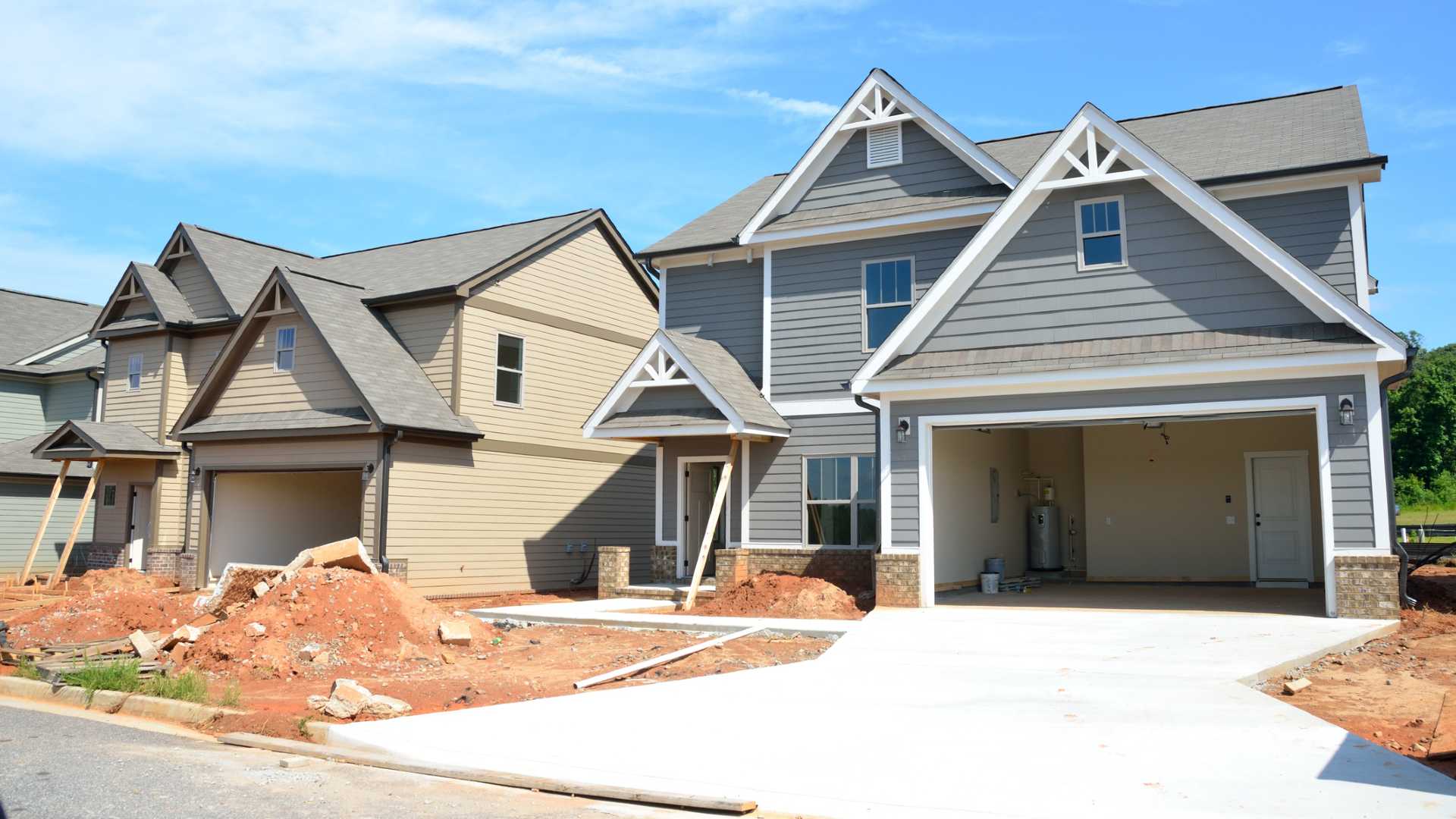Do you dream of building your dream home or just want to be the first person to live in your home? Maybe you’re finding it challenging to locate an affordable contemporary home that checks off all your boxes? If you’ve answered “Yes” to any of these scenarios, you should consider looking at newly constructed homes.
Benefits of buying a newly built home
The purchase of a newly constructed home comes with benefits that may align perfectly with what you have envisioned for yourself and your family.
Everything is brand new. All new construction homes have brand new appliances and fixtures, which reduces the risk of needing to replace inefficient appliances or make repairs to older homes. Additionally, many new homes have energy-efficient heating and cooling systems, insulated windows, walls and ceilings, and appliances that use less electricity and water.
The building meets today’s codes. Issues with older homes could arise, such as an unstable foundation, a poorly maintained roof, old plumbing systems, or electrical wiring. Builders must follow current energy and building code requirements when constructing new homes, so you’ll have minimal maintenance as the first owner.
You can customize your house to your family’s needs. Purchasing an older home and renovating it comes at a high cost. You can avoid renovation costs with a new construction home, where you work with a builder to design and style your home the way you prefer.
Which type of new construction home is right for you?
Once you’ve decided to consider buying a new home, you need to determine what type of construction fits your budget and works best with your goals.
Tract homes are a part of a new development or subdivision. Some builders may offer a few floor plans and options to customize finishes, but generally, the houses are built uniformly. Construction materials, appliances, and HVAC systems are bought in bulk, making the sales price of tract homes often cheaper per square foot than other new construction homes, making them popular with first-time homebuyers. When considering resale potential, tract homes often maintain equal value based on the other homes in the development and not the greater area surrounding the development.
Spec homes have been completed by the builder before having a buyer lined up. Although you won’t be a part of the design process or have the opportunity to customize the home, spec homes are a great option if you want to move straight in.
Custom homes are properties where you work with a builder to determine the complete layout and finishings. Designing a custom home can be overwhelming for first-time homebuyers because you are asked to make numerous design decisions. It’s generally the most expensive way to build a home, but you can build your dream home if you’ve got the budget.
Navigating the new construction home buying process
Shopping and buying new construction differs slightly from purchasing an existing home. However, following this guide will ease your home buying experience and direct you towards a successful close on your new home.
Hire a buyer’s agent to represent you
When purchasing a new construction home, it is recommended that you work with a buyer’s agent who will have your best interest in mind throughout the process. Select a buyer’s agent experienced with new construction homes to help you review and negotiate the builder’s contract and terms and understand the purchase agreement of your new home.
Research builders
Builders vary greatly, so it’s crucial to select one that has a reputation for building good quality homes in a style that meets your needs. If you are considering a tract or spec home, review each builder’s website for details of the location, floorplans, and finishes. If you plan to build a custom home, it’s essential to see that the builder has experience designing and constructing the style of home you want to live in.
Review each builder’s reputation by looking at their social media, the Better Business Bureau, and customer reviews on home remodeling websites to decide who you can trust to build your home. Tract home builders often have a model home in their development for you to view while the others are being built. If purchasing a spec home, you’ll likely be able to see the specific home you are buying.
Most new construction developments or neighborhoods will have a homeowner’s association (HOA). You usually pay a monthly or quarterly fee to the HOA to cover the maintenance of common areas, any facilities, and some utilities. This fee is in addition to your monthly mortgage payment, so it’s essential to budget the fee into your monthly house payment budget. HOAs often regulate what you can and can’t do to your home’s exterior, including paint color, lights, lawn, and driveway, so ask the developer or your agent for a copy of the HOA documents to review before proceeding.
Work with a lender who finances new construction homes
You will likely need a new construction home loan to help finance the cost of building your new home. New construction home loans differ from typical purchase mortgages because they are short-term loans, typically up to 12 months, that release a portion of the loan (called “draws”) at specific stages of the home’s construction. Once the home is built, you will convert the loan into a traditional mortgage. If the builder has financed the home’s construction, you can purchase the home with a regular mortgage.
Research neighborhoods to build your home
As you shop for a new construction home or a plot of land in an existing neighborhood to build your new home, consider where you want your new home to be located. Some things to keep in mind are:
- School districts
- Commute to work
- Proximity to grocery stores, restaurants, parks, gyms, movie theatres, etc.
- Neighborhood safety
Selecting the style of your new home
The first task that you will plan with your builder is the layout. Depending on the development, a builder will offer a specific number of floorplans and provide options and upgrades that you can select to meet your needs and budget.
Ask yourself questions like:
- How many floors do you want your home to have?
- How many bedrooms and bathrooms would you prefer?
- How much square footage can you afford to have?
- Do you need a garage, and for how many cars?
Often the builder will provide options for finishing touches, such as color schemes, flooring, countertops, lighting, appliances, etc. This is when it’s helpful to be working with an experienced buyer’s agent. Depending on the stage at which you buy into a development, your agent can help you negotiate deals on upgrades.
Before you commit to working with a builder, it’s essential to thoroughly read and understand the purchase agreement. Material and labor shortages have been a concern the past few years, and many builders, particularly custom home builders, have clauses that will charge you for the increased cost of materials. Additionally, supply chain delays can affect when building materials arrive and add months to a projected construction timeline.
Have your new home inspected
It’s easy to assume that a newly built home will have no immediate problems. However is important to have a building inspection because a building inspector, like the buyer’s agent, will provide an unbiased view of your new home. The home inspection will help to ensure your home is built to meet current building code requirements, that no corners have been cut during installation of the roof, windows, and doors, and there are no cosmetic flaws, to name a few.
When selecting a builder, ask about their warranty to know they will repair your home if the inspector finds any code issues or defects. For example, if it’s a two-year warranty, get an inspection before you sign off on the home and again before the warranty period ends.
Deciding whether a newly constructed home is right for you is a personal opinion. Like purchasing an existing home, it’s important to save a down payment and calculate all of the costs associated with owning the home. Then work with an experienced agent and mortgage lender to find and finance your new home.




